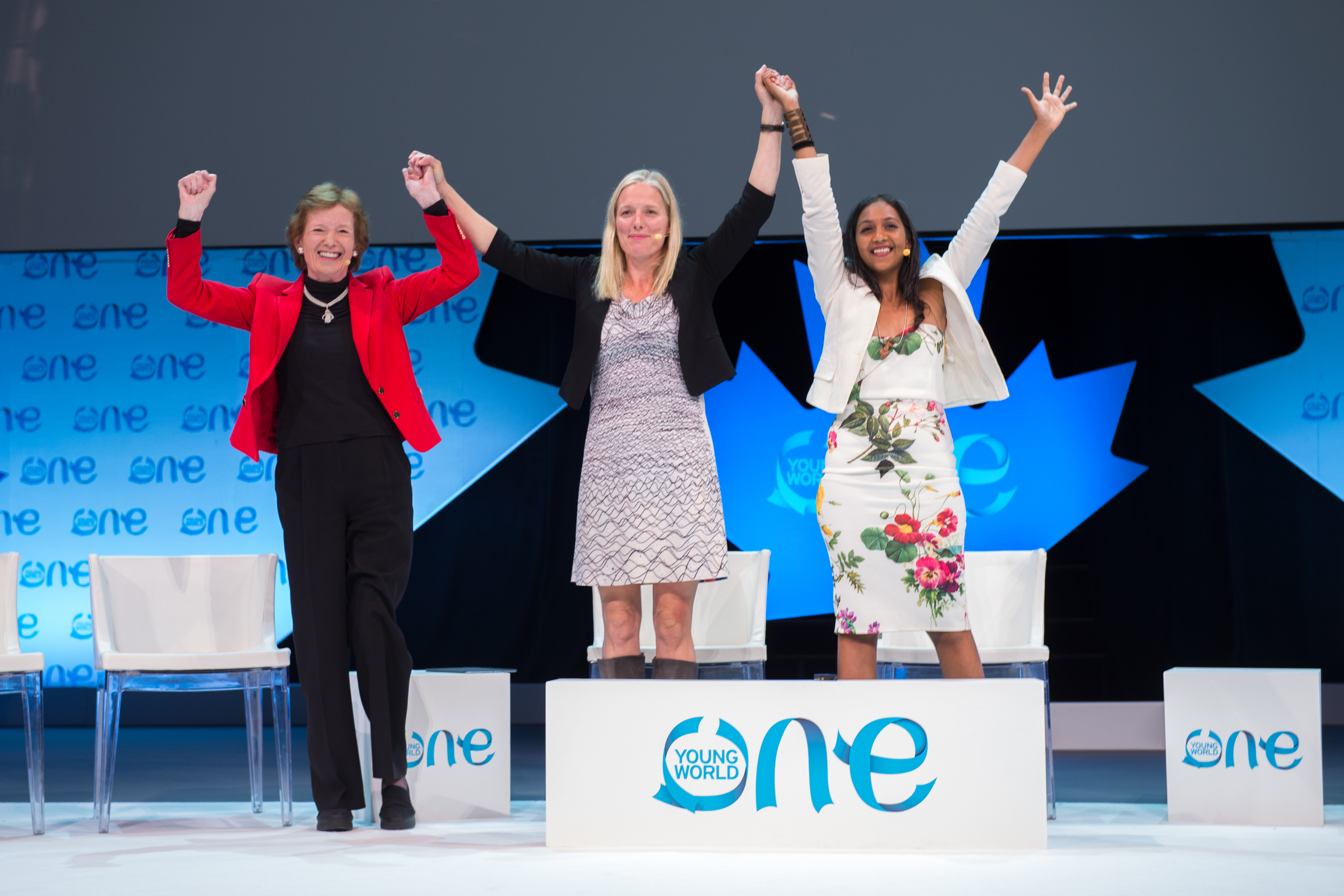Mary Robinson joined Catherine McKenna, Canadian Minister of Environment and Climate Change, and One Young World Climate Justice Prize Winner, Barkha Mossae to discuss equitable solutions in the face of global climate displacement during the One Young World Summit 2016 held in Ottawa, Canada September 28 – October 01.
Barka Mossae represented SeeingBlue, the organisation which won the OYW Climate Justice Prize. SeeingBlue was selected by OYW because they demonstrated ambition to foster a generation of “seatizens” who can confidently undertake actions for the protection of oceans, make decisions related to climate change and boost the overall resilience of their communities within Small Island Developing States (SIDS). As young leaders from Mauritius and Seychelles, their advocacy has been shaped by an understanding of their oceans as key environmental, economic and cultural assets and by an acute awareness of the vulnerability of SIDS to climate change.
Barkha Mossae, described how her home, the island of Mauritius, is “at the forefront of a massive injustice, having not contributed to climate change as such, we are facing the impacts really hard and that affects our livelihood that affects our identity”. “We can’t bear the thought that because of climate change the way we live is going to be affect,” she said.
When asked by session moderator Minister McKenna about her hopes for the next ten years, Barka outlined three key actions: that there would be as many women leaders in climate change as there are men, that everyone would become a climate change activist and to live in a world where people like her, living in the Pacific region didn’t live in fear for their survival because of the threat posed by climate change.
Mary Robinson imagined a world where being a guardian of future generations was institutionalized within the United Nations thus ensuring that policy decisions were sustainable, enabling a fair society to flourish within the planetary boundaries.


